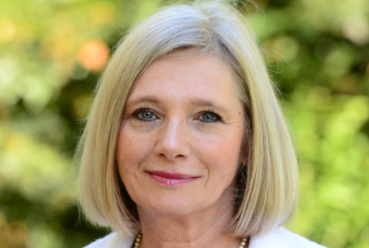The Charity Commission’s chief executive Helen Stephenson has warned that “intense, unpleasant, and sometimes unfair personal scrutiny” is putting potential candidates off becoming charity leaders.
She says that while it is right charily leaders are scrutinised for the decisions they make, she is concerned the pressures they are facing “can stretch beyond legitimate scrutiny”.
In one of her final speeches as chief executive before she steps down this summer, she said: “I feel strongly that there is a risk charity leaders are coming to face disproportionately intense, unpleasant, and sometimes unfair personal scrutiny – often from both within their charities, and externally.”
Social media, mainstream media and public complaints all add to the pressure charity leaders are facing.
“Overall, public debate on social issues in our country has become too charged, polarised, and often simply nasty,” she warns.
“And I am now concerned that potential candidates may be put off taking on leadership of charities because they are not prepared to bare their lives to the harsh light of unrelenting scrutiny.”
She said charity leaders are now being given a sense under such scrutiny “that they are on trial, just for doing their job”.
The media, politicians and “individuals with concerns or complaints about charities” are being urged by Stephenson to ensure they treat charity leaders “with courtesy, respect, and on the assumption that even those we disagree with may have honourable intentions.”
Stephenson is stepping down as chief executive after being in the post for seven years. She will be replaced in July by David Holdsworth, who was previously the regulator’s deputy chief executive and registrar, where he led on data handling, digital capability and risk assessment.
During her speech, made at the Trustee Exchange in London, Stephenson cited Commission research that found charities are “among the most trusted groups in society – second only after doctors”.
But she also raised concerns around “expectation creep” of the role of the regulator.
She warned against the public seeing the Commission as a “charity ombudsman” that is able to “offer some kind of remedy for those that feel that they have not had the service from a charity that they might have expected” or that it can regularly inspect every charity.
“Neither of these expectations is realistic or manageable under the current framework, and this worries me,” she said.
“Over coming years, the Commission is going to have to work hard to explain its role – what it can do, and what it can’t and won’t. I hope that we will have the sector’s support in this task.”
Latest News
-
Report warns of ‘fragile’ social investment market
-
Challenge events main driver of donations for charities of all sizes, research shows
-
Rebranded charity says old identity ‘was like driving with the handbrake on’
-
Fear of AI’s impact on charity sector grows among candidates, survey finds
-
Louise Dawtry: The culture shift that starts at lunch
-
One in seven people naming charities as life insurance beneficiaries
Charity Times video Q&A: In conversation with Hilda Hayo, CEO of Dementia UK
Charity Times editor, Lauren Weymouth, is joined by Dementia UK CEO, Hilda Hayo to discuss why the charity receives such high workplace satisfaction results, what a positive working culture looks like and the importance of lived experience among staff. The pair talk about challenges facing the charity, the impact felt by the pandemic and how it's striving to overcome obstacles and continue to be a highly impactful organisation for anybody affected by dementia.
Charity Times Awards 2023
Mitigating risk and reducing claims

The cost-of-living crisis is impacting charities in a number of ways, including the risks they take. Endsleigh Insurance’s* senior risk management consultant Scott Crichton joins Charity Times to discuss the ramifications of prioritising certain types of risk over others, the financial implications risk can have if not managed properly, and tips for charities to help manage those risks.
* Coming soon… Howden, the new name for Endsleigh.
* Coming soon… Howden, the new name for Endsleigh.
Better Society

© 2021 Perspective Publishing Privacy & Cookies













Recent Stories